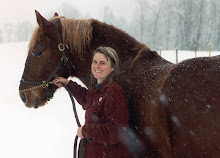I can’t recall how many times I’ve said this summer; thank god I’m not farming this year. Not in the true sense of the word, anyway, not with apprentices and farmer’s markets on Saturdays and Wednesdays, not filling wholesale and retail accounts on Tuesdays and Thursdays and Fridays.
For one, we’ve had one of, if not the most rainy springs on record. Our fields were so compacted that when we went to dig up the garlic, Kyle had to double dig them with a spade fork, and then I still had to pull and clean the heads. They made it, though, and we’re selling all that we can process, just Kyle and I. It makes for long hours sitting in the dust and chaff of the hay mow, cutting and trimming, then smoothing the outer dried and dirtied skins off. Sometimes Pat the barn cat or Moomee the housecat joins me, sashshaying back and forth, looking for attention. Occasionally, a hen will enter and wonder what I’m doing there, sitting in the dusky light, peeling and humming.
As far as the other crops, most of the gardens have been rotated through cover crops that are intended to suppress weed growth and beef up the biomass in the soil. Our mustard trials look like they did well: they held the dreaded Galinsoga weed at bay while feeding the honey bees and a myriad of other insect life. Then, the plants contributed a ton to the soil, first mowed, then plowed into the earth.
After the mustard, we planted buckwheat for the bees. It’s also a great weed smother crop, but there are those that swear cover crops don’t do anything to suppress weeds.
Which brings me to another favorite topic- the very idea of what is or isn’t a weed. I try very hard to instill in my son the need to remember that destroying some form of life just for the heck of it is not acceptable; the line we draw on what we destroy is a little hard to justify, however. Why, he asks, is it okay to kill a tomato hornworm, bent on destroying the tomatoes, but not the swallowtail caterpillar, eating through the dill and fennel?
Or how about the topic of the “invasives”, those plants considered a menace to ecosystems, like kudzu vine, or honeysuckle or bittersweet. They’re taking over the landscape, changing it, altering the rest of the life there.
Then there are the honeybees, non-natives from Europe, who have almost certainly displaced natives here, but who give us sweet honey. And how about earth worms, also not native, but carried over in the timbers of tall ships from across the seas, that now have permanently altered the soil structure in our forests and pastures and have most certainly added to its fertility.
Today, a thunderstorm has visited us twice. First, with winds so strong that they brought down black locust trees and our fields of corn, just tassled and ready to begin ripening. Hail, the size of marbles pelted the plants and cars and machinery. Beautiful to look at, but not so much if you’re a zucchini plant. Or Nancy, the little Modern Game bantam hen, who miraculously hatched out five chicks and has raised four almost to fledging (independence). At one point during the storm, I looked out and saw her and her brood being swept across the driveway in the wind and driving hail and rain, and screamed to Kyle and Bradford to come rescue them (I have broken my foot and am up to my knee in a cast, so am quite useless). The two boys found the brood, stashed behind a rock here and a piece of wood there and brought them, dripping wet, into the house, to their cockatiel cage, where they reside at night.
Every time a thunderstorm comes, it fixes nitrogen, and thus it’s instant fertilizer. That’s why it looks so green after a thunderstorm. For this, I can give thanks; for my flattened corn, I’m not so happy.
Bradford and Kyle spent the afternoon cutting up the tree that crashed across the round bales of hay . I swallowed a pit inside my stomach, watching my little son, who is not so little anymore, driving the tractor by himself to the pit with the tree’s limbs, while his father carved up the tree.
It’s the little storms that seem to mask the big transitions without anyone noticing. And in one summer, while the farm was at rest, my boy has been growing, fast- forward, toward not being a baby anymore.
Good thing this empty nest needs a wicked good cleaning.



